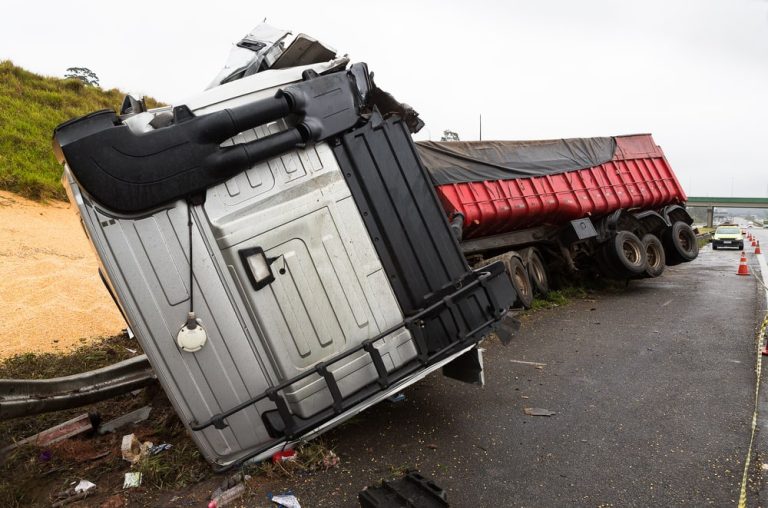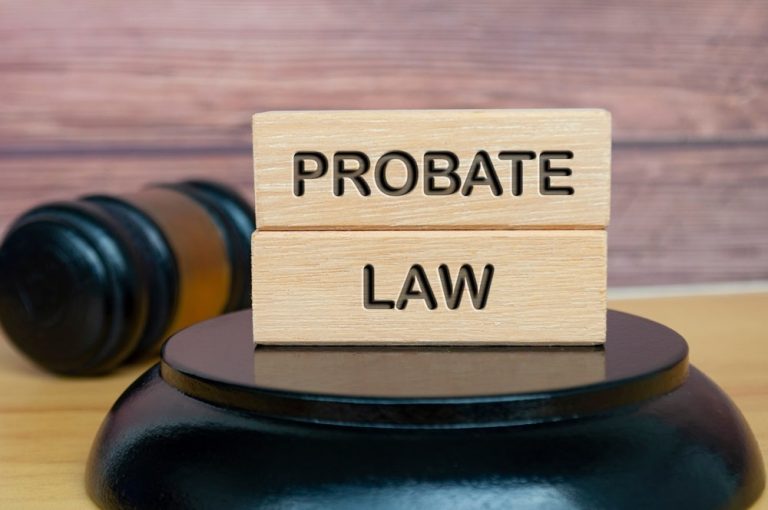Understanding Mesothelioma and Asbestos Exposure
Mesothelioma is a rare and aggressive cancer that primarily affects the lining of the lungs, abdomen, or heart. It’s almost exclusively caused by exposure to asbestos, a mineral once widely used in construction and manufacturing. When asbestos fibers are inhaled or ingested, they can become lodged in the body’s tissues, leading to inflammation and, over time, the development of mesothelioma. The disease often has a long latency period, meaning that symptoms may not appear for decades after the initial exposure. This delay can make it challenging to trace the source of the asbestos exposure. It’s a really nasty disease, and it’s almost always linked to asbestos.
Legal Basis for Wrongful Death Claims
A wrongful death lawsuit is a civil action brought by the family of someone who has died as a result of another party’s negligence or misconduct. The purpose of the lawsuit is to seek compensation for the losses suffered by the family due to the death of their loved one. These losses can include:
- Medical expenses incurred before death
- Funeral and burial costs
- Lost income and benefits
- Loss of companionship and support
Wrongful death claims are governed by state laws, which vary in terms of who can file a claim and the types of damages that can be recovered. It’s important to understand the specific laws in your state if you’re considering filing a wrongful death claim. Basically, if someone’s carelessness leads to a death, the family can sue.
Distinguishing from Personal Injury Claims
It’s important to differentiate a wrongful death claim from a personal injury claim. A personal injury claim is filed by someone who has been injured but is still alive. In contrast, a wrongful death claim is filed on behalf of someone who has died. If a person is diagnosed with mesothelioma and files a personal injury claim, and then subsequently dies from the disease, the claim may be converted into a wrongful death claim. The key difference is that the wrongful death claim seeks compensation for the losses suffered by the deceased’s family, while the personal injury claim seeks compensation for the injuries suffered by the individual themselves. It’s a subtle but important distinction.
Eligibility and Standing for a Wrongful Death Mesothelioma Claim
Identifying Eligible Family Members
So, who actually gets to file a wrongful death claim after someone dies from mesothelioma? It’s not just anyone. Generally, it’s the immediate family – think spouse, kids, and sometimes parents. State laws vary, though, so what’s allowed in one state might be different in another. For example, some states might allow dependent siblings or even more distant relatives to file, especially if they were financially dependent on the deceased. It’s important to check the specific laws in the state where the deceased lived. To sum it up, here are some of the people who can file a wrongful death lawsuit:
- Spouse
- Children
- Parents
- In some cases, dependent siblings or other relatives
Establishing the Deceased’s Asbestos Exposure
This is a big one. To even have a shot at a successful claim, you’ve got to prove that the person who died was actually exposed to asbestos. This isn’t always easy, especially if it happened a long time ago. Think about it – maybe they worked in a factory decades ago, or maybe they were exposed through a product they used regularly. Finding old employment records, union documents, or even talking to former coworkers can help. Sometimes, it’s about piecing together the puzzle. Here are some ways to establish exposure:
- Employment records
- Witness testimony from coworkers
- Product information showing asbestos content
Proving Causation in Mesothelioma Cases
Okay, so you’ve shown that the person had mesothelioma and that they were exposed to asbestos. Now you have to connect the dots and prove that the asbestos exposure caused the mesothelioma. This usually involves medical experts who can testify about the link between asbestos and this specific type of cancer. They’ll look at the person’s medical history, the type and amount of asbestos they were exposed to, and other factors to determine if asbestos was the primary cause. It’s not always a slam dunk, but with the right evidence and expert testimony, it can be done. If a family member died from mesothelioma, you may be able to file a wrongful death lawsuit to seek compensation. Here are some things that can help prove causation:
- Expert medical testimony
- Medical records showing mesothelioma diagnosis
- Scientific studies linking asbestos to mesothelioma
Key Elements of a Successful Wrongful Death Mesothelioma Claim
Gathering Comprehensive Medical Records
Okay, so you’re trying to build a strong case. First thing’s first: medical records. You need everything. I mean, every single doctor’s visit, every test result, every scan. The more complete the picture, the better. These records are the foundation of proving the deceased suffered from mesothelioma. It’s not just about having a diagnosis; it’s about showing the progression of the disease and how it impacted their life. Think of it like this: you’re telling a story, and the medical records are the evidence to back it up.
Documenting Asbestos Exposure History
Next up, you gotta figure out where the asbestos exposure happened. This can be tricky, especially if it was a long time ago. Start by thinking about their work history. Did they work in construction, shipbuilding, or any other industry where asbestos was common? Talk to family members, old coworkers, anyone who might have information. Old pay stubs, union records, anything like that can be super helpful. You’re trying to connect the dots between their exposure and the mesothelioma. It’s like detective work, really. You might need to look into asbestos exposure history to build a solid case.
Calculating Damages and Losses
Now comes the tough part: figuring out how much the mesothelioma cost the family. This isn’t just about medical bills (though those are definitely part of it). It’s also about lost income, funeral expenses, and the emotional toll the death took on everyone. Think about things like:
- Lost wages: What would the deceased have earned if they were still alive?
- Medical expenses: All those doctor visits, treatments, and hospital stays add up.
- Pain and suffering: This is harder to put a number on, but it’s a real loss.
- Loss of companionship: The emotional support and guidance the deceased provided.
- Funeral and burial costs: These can be surprisingly expensive.
Don’t forget to consider the statute of limitations. You need to act within the statute of limitations to file a claim.
The Legal Process for a Wrongful Death Mesothelioma Claim
Initiating the Claim and Filing a Lawsuit
So, someone’s decided to pursue a wrongful death claim related to mesothelioma. What happens first? Well, it starts with gathering all the necessary information and then actually filing a lawsuit. This involves identifying who the proper parties are – the people who can bring the claim and the companies that are responsible for the asbestos exposure. The initial complaint lays out the basic facts: how the deceased was exposed to asbestos, how that exposure led to mesothelioma, and how the family has suffered as a result. It’s a pretty important step, and getting it right from the start can really set the tone for the entire case. When filing a wrongful death claim for mesothelioma, it is crucial to consult an expert mesothelioma attorney. A skilled lawyer understands the complexities of such cases.
Discovery and Evidence Collection
Next up is the discovery phase. This is where both sides start digging for information. Think of it like a legal treasure hunt. Lawyers send out interrogatories (written questions), request documents, and take depositions (oral testimony under oath). They’re trying to piece together the puzzle of how the asbestos exposure happened. This might involve tracking down old work records, interviewing former coworkers, and getting expert opinions from doctors and industrial hygienists. It can be a long and tedious process, but it’s absolutely essential for building a strong case. The goal is to uncover as much evidence as possible to support the claim.
Negotiation, Mediation, and Trial Proceedings
Okay, so both sides have gathered their evidence. Now what? Often, the parties will try to negotiate a settlement. This could involve informal discussions or formal mediation, where a neutral third party helps them reach an agreement. If a settlement can’t be reached, then the case heads to trial. At trial, lawyers present their evidence to a judge or jury, who then decide whether the defendant is liable and, if so, how much compensation the family should receive. A wrongful death mesothelioma lawsuit may proceed to trial if a settlement isn’t reached, with a judge or jury determining liability and damages. Trial can be stressful and time-consuming, but it’s sometimes the only way to get justice for the deceased and their family. The steps are:
- Negotiation
- Mediation
- Trial
Types of Compensation in a Wrongful Death Mesothelioma Claim
When someone dies from mesothelioma due to asbestos exposure, their family can file a wrongful death claim. This type of claim seeks compensation for the losses the family has suffered. The compensation can cover a range of damages, aiming to provide financial relief and address the emotional toll.
Economic Damages for Financial Losses
Economic damages are intended to cover the financial losses the family experiences because of the death. These are tangible costs that can be calculated. This can include:
- Lost wages: This covers the income the deceased would have earned if they had lived.
- Medical expenses: This includes the costs of treatment, hospitalization, and medication related to the mesothelioma. It’s important to keep track of all medical expenses.
- Funeral and burial costs: These are the expenses associated with the funeral and burial arrangements.
- Loss of benefits: This includes things like health insurance or retirement benefits that the family has lost.
Non-Economic Damages for Pain and Suffering
Non-economic damages are harder to quantify because they address the intangible losses the family has experienced. These damages aim to compensate for the emotional and psychological impact of the death. This can include:
- Pain and suffering of the deceased: This compensates for the pain and discomfort the person experienced from the mesothelioma before their death.
- Loss of companionship: This covers the loss of the relationship and support the deceased provided to their family. It’s a big deal to lose that connection.
- Emotional distress: This addresses the emotional pain, suffering, and mental anguish the family has experienced. It’s tough to put a number on that, but it’s real.
Punitive Damages in Certain Circumstances
Punitive damages are not awarded in every case. They are intended to punish the defendant for particularly egregious behavior. These damages are meant to deter similar conduct in the future. They’re awarded when the defendant’s actions were especially reckless or malicious. It’s like sending a message that such behavior won’t be tolerated. The availability of punitive damages can vary depending on the jurisdiction and the specific facts of the case. It’s important to talk to a lawyer to understand if they might apply in your situation.
Statute of Limitations for a Wrongful Death Mesothelioma Claim
Understanding State-Specific Deadlines
Each state has its own rules about how long you have to file a lawsuit, and this is called the statute of limitations. For a wrongful death mesothelioma claim, this deadline is especially important because it starts from the date of the person’s death, not when they were diagnosed. It’s not a one-size-fits-all thing; what’s true in one state might not be in another. For example, Nebraska asbestos lawsuits have a specific timeframe for filing.
Importance of Timely Legal Action
Missing the deadline to file a wrongful death mesothelioma claim means you could lose your chance to get compensation. It’s that simple. The court will likely dismiss the case if it’s filed too late. To avoid this, it’s important to:
- Talk to a lawyer as soon as possible.
- Understand the specific rules in your state.
- Gather all relevant documents quickly.
Exceptions and Tolling Provisions
Sometimes, there are exceptions to the statute of limitations. “Tolling” is a legal term that means pausing or delaying the deadline. This might happen if:
- The defendant (the company being sued) tried to hide something.
- The deceased person was legally incapacitated at some point.
- There are other special circumstances that a court might consider.
These exceptions can be complicated, so it’s really important to get legal advice to see if they apply to your situation.
Choosing the Right Legal Representation for a Wrongful Death Mesothelioma Claim
Finding the right lawyer can feel overwhelming, especially when you’re already dealing with so much. It’s not just about finding any lawyer; it’s about finding someone who truly understands the complexities of mesothelioma cases and wrongful death claims. You need someone who will fight for you and your family.
Experience with Asbestos Litigation
When it comes to mesothelioma, experience matters. You want a legal team that has a proven track record in asbestos litigation. This means they’ve handled similar cases before, they know the ins and outs of asbestos exposure, and they understand the specific challenges that come with these types of claims.
- Look for a firm that specializes in mesothelioma cases.
- Ask about their success rate in similar wrongful death claims.
- Inquire about their knowledge of asbestos trust funds.
Client-Focused Approach and Communication
A good lawyer should prioritize clear and consistent communication. You shouldn’t have to chase them down for updates or feel like you’re in the dark about your case. They should be responsive, empathetic, and willing to explain everything in a way that you can understand. It’s important that they listen to your concerns and address your questions promptly. A mesothelioma lawyer should be there to guide you.
- Do they take the time to explain the legal process?
- Are they responsive to your calls and emails?
- Do they make you feel comfortable and supported?
Contingency Fee Arrangements
Most mesothelioma lawyers work on a contingency fee basis. This means that you don’t pay any upfront fees. Instead, the lawyer only gets paid if they win your case. The fee is usually a percentage of the settlement or award. This arrangement can make legal representation more accessible, as it eliminates the financial burden of paying hourly fees. Families of deceased patients can hire the firm to pursue a wrongful death lawsuit.
- Understand the percentage they will take if they win.
- Make sure all costs and expenses are clearly outlined.
- Get the agreement in writing before moving forward.
Support and Legal Help Resources










